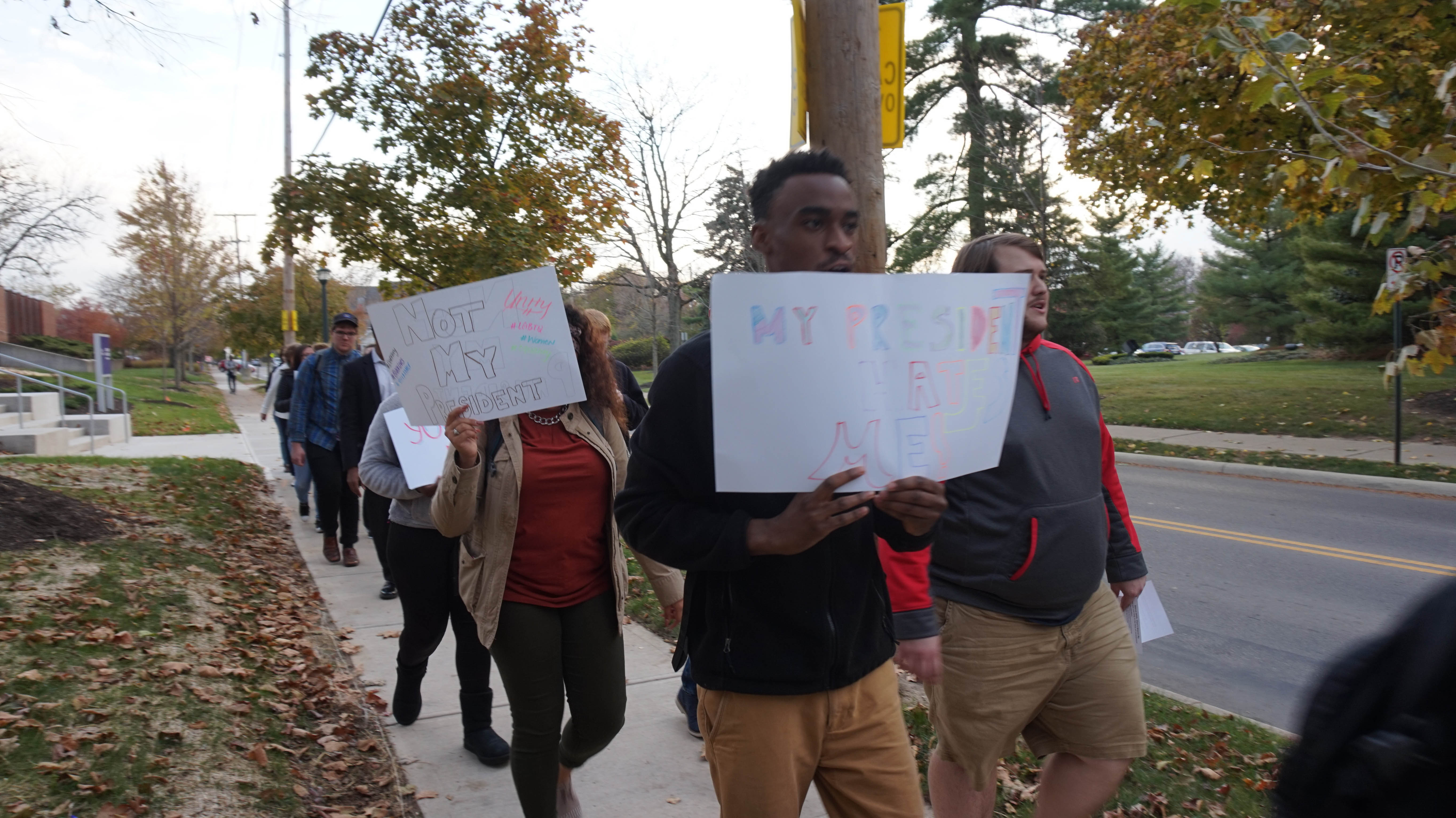“But you’re a democrat.”
He said the word like it was dirty and curled up his lips like the “Inside Out” character, Disgust, “I’m surprised you’re not against ‘hate speech.’”
I laughed; this was a response I was used to, but I understood where he was coming from. Most people who fall on the left and right side of the aisle are all for free speech — unless it’s radical feminists, a black man kneeling on a football field, Milo Yiannopoulos, Nazis or the KKK.
All of these are examples of free speech, all of them controversial for different reasons. That is, of course, when things get complicated. I used to look at people who supported the Westboro Baptist Church and wonder why it wasn’t all banned.
How could this be legal?
Now, I’ve made a 360-degree change of mind as a result of the 2016 election. Frankly, this is quite unexpected. I’m a bisexual, disabled woman with a liberal leaning ideology. I could be the poster child for ‘snowflake’ leftist identity politics, although the right side of the aisle can be the same way. Just tell an evangelical Christian “Happy Holidays” or tell Tomi Lahren that Meryl Streep is your hero and wait for the world the burn.
In reality, free speech is hard. It’s hard to look at people with whom you disagree on a fundamental level and allow them the continue to ‘damage society.’ The problem is that, from their point of view, you’re the one doing the damage. Everyone is throwing a wrench into someone else’s day, no matter what you think, whether you like it or not.
In extreme cases, like hate speech, this becomes even more difficult. The few times in my life that I’ve heard the word ‘faggot’ used in a derogatory sense, it’s made me sick. In other communities, this is similarly felt. There’s a reason that the use of the ‘N word’ is such a hot topic in the black community. These words represent the attempted destruction of a culture and the pain of an entire community — one that has literally taken lives.
Symbols are the same way. Earlier this month, the appearance of a Mississippi state flag caused quite the stir on campus for the Confederate flag in the corner. While it was eventually taken down, it caused discussion among students about whether or not the university could intervene.
I’m not sure that the university should be able to.
Yes, hate speech is unacceptable. No, I don’t agree with it. I also recognize that there’s a big difference in the meaning of a Confederate flag compared something like a Pride flag. Those two things aren’t sending similar messages. One of them represents an entire half of the country trying to leave because they wanted to own black people, and the other represents sexual freedom. Those two things aren’t the same.
But they are both representative of opinions.
Hate speech, while wrong and disrespectful, still represents a point of view. What even ‘counts’ as hate speech is dependent on who you ask. While I recognize that “I don’t like gay people” is an incredibly ignorant point of view, it still is one. Banning this type of thinking from an institution of learning leaves out the opportunity to educate and discuss why something is inappropriate and change minds about a topic.
At the same time, major social movements in our history were once extremely unpopular and would have never flourished without free speech: the civil rights movement, abolitionism, the Americans with Disabilities Act, the fight for transgender rights, LGBTQ, universal women’s suffrage. None of these things would exist without the freedom to speak, even if the topic is unpopular.
Many of these movements were strongly propelled on college campuses like our own. If we allow censorship of any kind, it can be damaging to movements like these in the future. That includes hatred and ignorance.
In the real world, people are allowed to showcase hatred for one another. It is a very real, incredibly potent human emotion. But instead of pushing it away and burying it underneath laws that forbid it, we should be explaining why it’s wrong and talking about why it happens. Learning to confront people that promote the opposite ideas in the classroom gives students the opportunity to experience and act on their learning.
Hatred and ignorance only exist if education fails. If you educate with an open mind and love for others, then you don’t have to fear that negative ideas will take root in the first place.
That’s why adopting the Chicago Principles is so important. Protecting student speech from administrative oversight and censorship isn’t a promotion of hate speech or disrespect. It’s about protecting our voice now — no matter who you are.
Interested in learning more about protecting free speech? Look up the Chicago Principles online or contact Young Americans for Liberty on campus to learn more.

